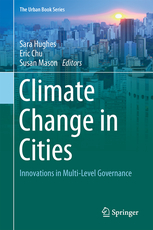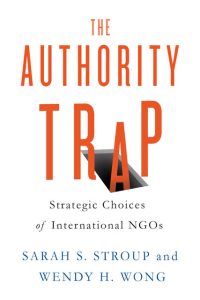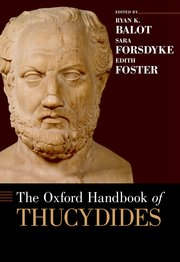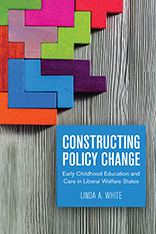
Responses to Marx’s Capital
Responses to Marx’s Capital : From Rudolf Hilferding to Isaak Illich Rubin is a collection of primary sources dealing with the reception of the economic works of Karl Marx from the First to the Third International. The documents, translated for the first time from German and Russian, range from the original reviews of the three volumes of Capital and the three volumes ofTheories of Surplus Value to the debates between the Marxist economists and the bourgeois academic representatives of the theory of marginal utility and the German historical school. The volume closes with six essays by the prominent economist Isaak I. Rubin, including ‘Essays on Marx’s Theory of Money’ and ‘The Dialectical Development of Categories in Marx’s Economic System’.

Climate Change in Cities: Innovations in Multi-Level Governance
This book presents pioneering work on a range of innovative practices, experiments, and ideas that are becoming an integral part of urban climate change governance in the 21st century. Theoretically, the book builds on nearly two decades of scholarships identifying the emergence of new urban actors, spaces and political dynamics in response to climate change priorities. However, it further articulates and applies the concepts associated with urban climate change governance by bridging formerly disparate disciplines and approaches. Empirically, the chapters investigate new multi-level urban governance arrangements from around the world, and leverage the insights they provide for both theory and practice.
Cities – both as political and material entities – are increasingly playing a critical role in shaping the trajectory and impacts of climate change action. However, their policy, planning, and governance responses to climate change are fraught with tension and contradictions. While on one hand local actors play a central role in designing institutions, infrastructures, and behaviors that drive decarbonization and adaptation to changing climatic conditions, their options and incentives are inextricably enmeshed within broader political and economic processes.
Resolving these tensions and contradictions is likely to require innovative and multi-level approaches to governing climate change in the city: new interactions, new political actors, new ways of coordinating and mobilizing resources, and new frameworks and technical capacities for decision making. We focus explicitly on those innovations that produce new relationships between levels of government, between government and citizens, and among governments, the private sector, and transnational and civil society actors. A more comprehensive understanding is needed of the innovative approaches being used to navigate the complex networks and relationships that constitute contemporary multi-level urban climate change governance.
Debra Roberts, Co-Chair, Working Group II, IPCC 6th Assessment Report (AR6) and Acting Head, Sustainable and Resilient City Initiatives, Durban, South Africa
“Climate Change in Cities offers a refreshingly frank view of how complex cities and city processes really are.”
Christopher Gore, Associate Professor and Chair, Department of Politics and Public Administration, Ryerson University, Canada
“This book is a rare and welcome contribution engaging critically with questions about cities as central actors in multilevel climate governance but it does so recognizing that there are lessons from cities in both the Global North and South.”
Harriet Bulkeley, Professor of Geography, Durham University, United Kingdom
“This timely collection provides new insights into how cities can put their rhetoric into action on the ground and explores just how this promise can be realised in cities across the world – from California to Canada, India to Indonesia.”

The Oxford Handbook of Citizenship
Contrary to predictions that it would become increasingly redundant in a globalizing world, citizenship is back with a vengeance. The Oxford Handbook of Citizenship brings together leading experts in law, philosophy, political science, economics, sociology, and geography to provide a multidisciplinary, comparative discussion of different dimensions of citizenship: as legal status and political membership; as rights and obligations; as identity and belonging; as civic virtues and practices of engagement; and as a discourse of political and social equality or responsibility for a common good.
The contributors engage with some of the oldest normative and substantive quandaries in the literature, dilemmas that have renewed salience in today’s political climate. As well as setting an agenda for future theoretical and empirical explorations, this Handbook explores the state of citizenship today in an accessible and engaging manner that will appeal to a wide academic and non-academic audience. Chapters highlight variations in citizenship regimes practiced in different countries, from immigrant states to ‘non-western’ contexts, from settler societies to newly independent states, attentive to both migrants and those who never cross an international border. Topics include the ‘selling’ of citizenship, multilevel citizenship, in-between statuses, citizenship laws, post-colonial citizenship, the impact of technological change on citizenship, and other cutting-edge issues.
This Handbook is the major reference work for those engaged with citizenship from a legal, political, and cultural perspective. Written by the most knowledgeable senior and emerging scholars in their fields, this comprehensive volume offers state-of-the-art analyses of the main challenges and prospects of citizenship in today’s world of increased migration and globalization. Special emphasis is put on the question of whether inclusive and egalitarian citizenship can provide political legitimacy in a turbulent world of exploding social inequality and resurgent populism.

Jihad & Co. – Black Markets and Islamist Power
For two decades, militant jihadism has been one of the world’s most pressing security crises. In civil wars and insurgencies across the Muslim world, certain Islamist groups have taken advantage of the anarchy to establish political control over a broad range of territories and communities. In effect, they have built radical new jihadist proto-states.
Why have some ideologically-inspired Islamists been able to build state-like polities out of civil war stalemate, while many other armed groups have failed to gain similar traction? What makes jihadists win? In Jihad & Co., Aisha Ahmad argues that there are concrete economic reasons behind Islamist success. By tracking the economic activities of jihadist groups in Afghanistan, Somalia, Pakistan, Mali, and Iraq, she uncovers an unlikely actor in bringing Islamist groups to power: the local business community.
To illuminate the nexus between business and Islamist interests in civil war, Ahmad journeys into war-torn bazaars to meet with both jihadists and the smugglers who financed their rise to power. From the arms markets in the Pakistani border region to the street markets of Mogadishu, their stories reveal a powerful economic logic behind the rise of Islamist power in civil wars. Behind the fiery rhetoric and impassioned, ideological claims is the cold, hard cash of the local war economy. Moving readers back and forth between mosques, marketplaces, and battlefields, Ahmad makes a powerful argument that economic savvy, as much as ideological fervor, explains the rise of militant jihadism across the modern Muslim world.

Mobilizing Without the Masses – Control and Contention in China
When advocacy organizations are forbidden from rallying people to take to the streets, what do they do? When activists are detained for coordinating protests, are their hands ultimately tied? Based on political ethnography inside both legal and blacklisted labor organizations in China, this book reveals how state repression is deployed on the ground and to what effect on mobilization. It presents a novel dynamic of civil society contention – mobilizing without the masses – that lowers the risk of activism under duress. Instead of facilitating collective action, activists coach the aggrieved to challenge authorities one by one. In doing so, they lower the risks of organizing while empowering the weak. This dynamic represents a third pathway of contention that challenges conventional understandings of mobilization in an illiberal state. It takes readers inside the world of underground labor organizing and opens the black box of repression inside the world’s most powerful authoritarian state.
See also:
Cambridge University Press, Contentious Politics Series
Columbia University Weatherhead Series on East Asia.

Interviewing in Social Science Research: A Relational Approach
What is interviewing and when is this method useful? What does it mean to select rather than sample interviewees? Once the researcher has found people to interview, how does she build a working relationship with her interviewees? What should the dynamics of talking and listening in interviews be? How do researchers begin to analyze the narrative data generated through interviews?
Lee Ann Fujii explores the answers to these inquiries in Interviewing in Social Science Research, the latest entry in the Routledge Series on Interpretive Methods. This short, highly readable book explores an interpretive approach to interviewing for purposes of social science research. Using an interpretive methodology, the book examines interviewing as a relational enterprise. As a relational undertaking, interviewing is more akin to a two-way dialogue than a one-way interrogation. Fujii examines the methodological foundations for a relational approach to interviewing, while at the same time covering many of the practical nuts and bolts of relational interviewing. Examples come from the author’s experiences conducting interviews in Bosnia, Rwanda, and the United States, and from relevant literatures across a variety of social scientific disciplines. Appendices to the book contain specific tips and suggestions for relational interviewing in addition to interview excerpts that give readers a sense of how relational interviews unfold.
This book will be of great value to graduate students and researchers from across the social sciences who are considering or planning to use interviews in their research, and can be easily used by academics for teaching courses or workshops in social science methods.

The Authority Trap – Strategic Choices of International NGOs
Not all international nongovernmental organizations (INGOs) are created equal, Some have emerged as “leading INGOs” that command deference from various powerful audiences and are well-positioned to influence the practices of states, corporations, and other INGOs. Yet Sarah S. Stroup and Wendy H. Wong make a strong case for the tenuous nature of this position: in order to retain their authority, INGOs such as Greenpeace, Oxfam, and Amnesty International refrain from expressing radical opinions that severely damage their long-term reputation. Stroup and Wong contend such INGOs must constantly adjust their behavior to maintain a delicate equilibrium that preserves their status.
Activists, scholars, and students seeking to understand how international organizations garner and conserve power—and how this affects their ability to fulfill their stated missions—will find much of value in The Authority Trap. The authors use case studies that illuminate how INGOs are received by three main audiences: NGO peers, state policymakers, and corporations. In the end, the authors argue, the more authority an INGO has, the more constrained is its ability to affect the conduct of world politics.

The Oxford Handbook of Thucydides
The Oxford Handbook of Thucydides contains newly commissioned essays on Thucydides as an historian, thinker, and writer. It also features chapters on Thucydides’ intellectual context and ancient reception. The creative juxtaposition of historical, literary, philosophical, and reception studies allows for a better grasp of Thucydides’ complex project and its intellectual context, while at the same time providing a comprehensive introduction to the author’s ideas. The volume is organized into four sections of papers: History, Historiography, Political Theory, and Context and Reception. It therefore bridges traditionally divided disciplines. The authors engaged to write the forty chapters for this volume include both well-known scholars and less well-known innovators, who bring fresh ideas and new points of view. Articles avoid technical jargon and long footnotes, and are written in an accessible style. Finally, the volume includes a thorough introduction prefacing each paper, as well as several maps and an up-to-date bibliography that will enable further study. The Oxford Handbook of Thucydides offers a comprehensive introduction to a thinker and writer whose simultaneous depth and innovativeness have been the focus of intense literary and philosophical study since ancient times

Constructing Policy Change: Early Childhood Education and Care in Liberal Welfare States
In Constructing Policy Change, Linda A. White examines the expansion of early childhood education and care (ECEC) policies and programs in liberal welfare states, including Australia, Canada, New Zealand, the UK, and the USA.
In the first part of the book, the author investigates the sources of policy ideas that triggered ECEC changes in various national contexts. This is followed by a close analysis of cross-national variation in the implementation of ECEC policy in Canada and the USA. White argues that the primary mechanisms for policy change are grounded in policy investment logics as well as cultural logics: that is, shifts in public sentiments and government beliefs about the value of ECEC policies and programs are rooted in both evidence-based arguments and in principled beliefs about the policy.
A rich, nuanced examination of the reasons motivating ECEC policy expansion and adoption in different countries, Constructing Policy Change is a corrective to the comparative welfare state literature that focuses on political interest alone.

Canada’s Odyssey: A Country Based on Incomplete Conquests
150 years after Confederation, Canada is known around the world for its social diversity and its commitment to principles of multiculturalism. But the road to contemporary Canada is a winding one, a story of division and conflict as well as union and accommodation.
In Canada’s Odyssey, renowned scholar Peter H. Russell provides an expansive, accessible account of Canadian history from the pre-Confederation period to the present day. By focusing on what he calls the “three pillars” of English Canada, French Canada, and Aboriginal Canada, Russell advances an important view of our country as one founded on and informed by “incomplete conquests”. It is the very incompleteness of these conquests that have made Canada what it is today, not just a multicultural society but a multinational one.
Featuring the scope and vivid characterizations of an epic novel, Canada’s Odyssey is a magisterial work by an astute observer of Canadian politics and history, a perfect book to commemorate the 150th anniversary of Confederation.